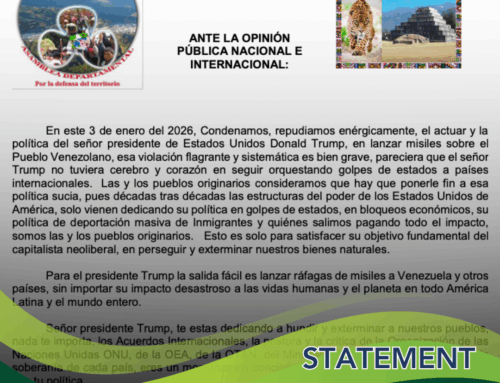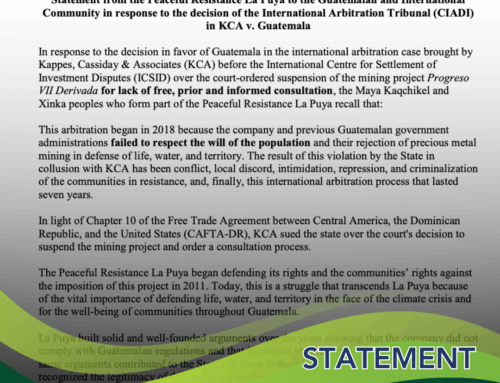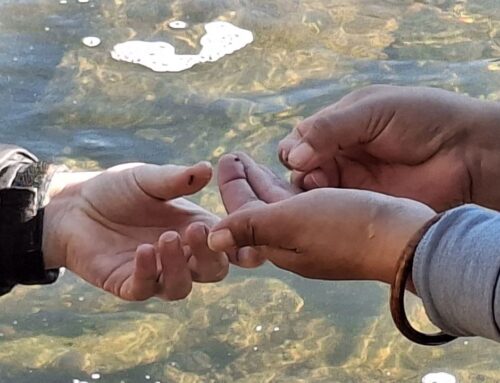Featured photo credit: La Hora GT
For weeks, Guatemala has made international headlines after President Jimmy Morales announced his government will not renew the mandate for the UN-backed International Commission Against Impunity in Guatemala (CICIG), an independent anti-corruption body that has had significant impact in the country since its inception 12 years ago. Days after his announcement, he declared the commission’s head, Iván Velásquez, a persona non grata and barred him from returning to Guatemala after a trip to Washington, D.C.
President Morales first made the CICIG announcement on August 31 surrounded by military personnel and with tanks positioned outside of CICIG’s offices. Since then, a massive presence of military and police have been deployed to the center of Guatemala City – reminiscent of the internal armed conflict.
What’s unfolding in Guatemala has both deep historical roots and important ramifications for the fight against impunity, the protection of human rights and environmental defenders, and the respect for constitutional guarantees. Here, we provide a brief timeline of some of the most important events that have transpired over the past few years with some background context to better understand what’s happening today in Guatemala.
A timeline: Most recent
January – August, 2018: Nineteen human rights and environmental defenders are killed – the majority of which were indigenous leaders fighting to protect their lands. Between May 9 and July 27 alone, 11 people are killed and many showed signs of torture. Right-wing groups like the Foundation Against Terrorism and the Pro-Patriot League continue to intimidate human rights and environmental defenders, making defamatory remarks in the media.
August 31, 2018: Surrounded by members of the military, Jimmy Morales announces that his government will not renew CICIG’s mandate after it expires in September 2019. Four days later, he announces he will bar CICIG’s head Ivan Velásquez from entering the county, alleging that he is a threat to the national security and stability of Guatemala.
Reports confirmed that #IvanVelasquez, head of U.N. anti-corruption commission #CICIG & currently in DC, will be denied re-entry to #Guatemala. His visa renewal was denied on Fri, arguing a threat to natl security & contradicting a prior Constitutional Court ruling. pic.twitter.com/F4Mi9aTIAX
— NISGUA (@NISGUA_Guate) September 4, 2018
September 6, 2018: The Unit for the Protection of Human Rights Defenders (UDEFEGUA) denounces significant police presence at the offices of several human rights organizations in Guatemala City, including the Human Rights Office of the Archdiocese of Guatemala (ODHAG), the Association for the Promotion of Security and Democracy (SEDEM), the Committee for Campesino Unity (CUC), the Myrna Mack Foundation, and UDEFEGUA. They consider the deployment of police an overt intimidation tactic against human rights and campesino organizations in the current climate.
September 2018: Jimmy Morales and his government attempt to pass reforms to the law on impeachment, which would see important powers currently held by the Supreme Court be transferred to Congress. If passed, the changes would bypass the Supreme Court and give Congress the full power to revoke immunity from government officials – in effect, giving Morales and his supporters both the power to stop legal proceedings that seek their impeachment and strip immunity from other public officials, including Constitutional Court judges. At the time of this writing, the proposed reforms are in their third reading in Congress and a decision is expected soon.
September 12, 2018: People take to the streets across Guatemala to protest the actions of President Morales, with large marches entering Guatemala City along the four main highways. Members of the Guatemalan special forces – the kaibiles – join other members of the military and police and are deployed around Guatemalan Congress. NISGUA urges Guatemalans living in the U.S. to call their nearest Guatemalan consulate expressing concern and demanding that peaceful protest be respected. Non-Guatemalan allies are urged to call the Guatemala Embassy in the U.S. to do the same.
#EyesOnGuatemala ! CALL your nearest #Guatemala consulate in the U.S.: tell them you are deeply concerned about escalated police and military presence in the streets and demand that peaceful protest be respected. Find the numbers here: https://t.co/ZXAdwbxTdM | Photo: @lahoragt pic.twitter.com/N1xotsnxGX
— NISGUA (@NISGUA_Guate) September 12, 2018
September 13, 2018: Survivors of the internal armed conflict denounce remilitarization under President Jimmy Morales’ government, including a significant presence of military and police in the streets during yesterday’s peaceful protests. They state, “The same army is responsible for more than 200,000 deaths and forced disappearances.” Read their full communique here.
En conferencia de prensa, sobrevivientes del conflicto armado interno rechazan la #militarización como una estrategia para reprimir y callar a los pueblos. pic.twitter.com/H0ICip2C0p
— NISGUA (@NISGUA_Guate) September 13, 2018
Historical context
December 12, 2006: The International Commission Against Impunity in Guatemala (CICIG) is formed as an independent body to support the Public Prosecutor’s office in investigating and prosecuting parallel power structures in Guatemala. Over the next several years, CICIG makes significant recommendations to the government of Guatemala for judicial reforms that better articulate specific crimes related to corruption. A series of High-Risk Courts are established to hear cases related to corruption, organized crime, massacres, crimes against humanity, genocide, and other major human rights violations.
May 10, 2013: Former dictator Efraín Ríos Montt is convicted of genocide in a High-Risk Court presided by Judge Yasmín Barrios. In the verdict, Barrios calls on the public prosecutor to also investigate those responsible for financing the genocide, alluding to the powerful companies controlled by the oligarchy in Guatemala who are also currently financing hydroelectric dams, mines, and other megadevelopment projects in the country.
2015: CICIG and the Public Prosecutor’s Office reveal evidence from investigations into La Linea customs fraud scandal, that implicate – among others – then-President Otto Pérez Molina and Vice President Roxana Baldetti. After months of massive and sustained protests, President Molina steps down and is indicted on charges of corruption.
January 14, 2016: Jimmy Morales begins his presidency, elected under the campaign “Neither corrupt, nor a thief.” He runs with the National Convergence Front (FCN) party, a right-wing military party founded in 2008 in part to stop the prosecution of retired military officials for human rights abuses. President Morales is backed by another FCN member, Congressman Edgar Ovalle – a School of the Americas graduate, active member of the Guatemalan Veterans Association (AVEMILGUA), and accused of carrying out forced disappearances in the region of Cobán during the internal armed conflict. Morales continues to fight against the CICIG in an effort to protect retired military officials from prosecution for crimes against humanity and/or corruption, prevent further investigations into the licensing of megadevelopment projects, and crack down on community resistance to resource extraction.
August 25, 2017: Attorney General Thelma Aldana and CICIG Head Iván Velásquez present the first call for impeachment against President Morales for failing to report over a million dollars in campaign financing during the 2015 election. The vote to revoke President Morales’ immunity, thereby opening him up to further investigation and potential prosecution, fails to achieve the necessary votes in Congress. Thousands of people take to the streets to denounce this “Pact of the Corrupt” (Pacto de los corruptos) – referencing the members of Congress who, themselves accused of corruption, are protecting the President.
August 27, 2017: President Morales declares CICIC head Ivan Velásquez a persona non grata in the country. The Constitutional Court rules that he is acting outside of his role as president and orders him to leave the CICIG alone.
For additional reading:
- “Indigenous Authorities Unite Against Corruption Debacle in Guatemala” – Sandra Cuffe reports for Truth Out
- “Without a U.N.-backed commission, land rights activists face more deadly persecution in Guatemala” – Opinion by Rony Morales and Michael Taylor in the Washington Post
- “Constitutional Standoff Pushes Guatemala Toward Authoritarianism” – Azam Ahmed and Elisabeth Malkin report in the New York Times






Leave A Comment